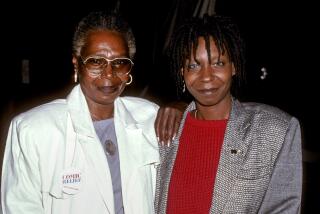‘God’s Funeral’ Shows Old Issues Endure
A hundred years ago, as Europeans and Americans contemplated the dawn of the 20th century, they were fairly certain that they faced a future without God. After the revelations of Darwin, the philosophy of Marx and the psychology of Freud, God and religion had been bludgeoned nearly to death. The funeral was widely anticipated, but as A. N. Wilson shows in his eloquent, quirky book, reports of God’s demise were premature.
The title of Wilson’s latest work comes from a poem by Thomas Hardy. Wilson, whose previous books have tackled religious icons such as St. Paul and religious thinkers such as C. S. Lewis, uses the poem as an organizing principle. He depicts the 19th century as a steady progression from skepticism about God to agnosticism and then finally to disbelief. Yet, Wilson shows, the need for God and the desire to believe in an immanent, transcendent power was more deeply rooted than thinkers such as Freud and Nietzsche had supposed.
Wilson frames his musing in the context of the 20th century struggle between reason and faith, and he observes that as our century nears its end, religion and science, reason and revelation are still at odds in a way that educated Europeans of the last century would have found all too familiar. In part, Wilson’s goal is simply to show that the contest today between Protestant fundamentalism and secular society, or between militant Islamic fundamentalism and Western mores, is a rehash of similar battles in the 19th century. But he also uses the theme of how science and reason corroded traditional notions of God and religion as an excuse for writing a rambling, tangential series of biographical sketches of the leading intellectual and literary lights of 19th century Britain.
The result is a book that is at once entertaining, complicated, obscure, confusing and poetic. It is also very English, in that it assumes an education that would make the reader familiar with names such as Matthew Arnold, Thomas Carlyle, David Hume, Immanuel Kant, Alfred Lord Tennyson, Lord Gladstone, Herbert Spenser and dozens of other figures who fueled the engine of 19th century English culture. It was an era when culture truly was the product of a small, interconnected coterie of intellectuals, writers, poets, politicians and artists--and the occasional woman such as the novelist George Eliot and the writer-turned-activist Beatrix Potter. Today, even many Americans who have had the benefit of a core curriculum at an exclusive college would know the works of only a few of the major figures of the 19th century, yet Wilson writes as if most of them were common knowledge. He offers compelling portraits of everyone he discusses, but at times he seems to be writing about a world as alien and distant from us today as ancient Babylon.
But what a world it was. The elites of that era were acutely aware of the incremental loss of faith, of the slow death of established dogmas and the ineluctable shift from a world governed by God. Darwin inadvertently displaced God the Creator with natural selection; Marx and Hegel charted a history that evolves according to observable rules without reference to religion; and doubt seeped in, some of it gnawing, some of it fatalistic.
Wilson depicts not only those who spurred God’s death, but also those who reacted. Matthew Arnold, for instance, tried to defend religion and the church, as well as classical education, as a necessary glue holding society together. Like many of his day, he believed that religion was imperative even if God were absent. Others looked to new conceptions of God and nature, and Wilson celebrates the philosophy of William James and the late 19th century Pragmatists as integrating the new thinking with the thirsty need of human beings to believe.
It’s impossible to do justice to the multilayered sophistication of Wilson’s prose. The book is a trove of hidden gems, and if Wilson occasionally wanders from the central narrative, and if he sometimes gets so enamored of his own erudition that he leaves the reader gasping for air, those prices are not too steep for a book as rich as this. He also tends to conflate “God” and “religion,” which he knows are quite distinct, but which the 19th century protagonists of his narrative did not.
Wilson ends bemused at how wrong some of the prognosticators of God’s doom were: “If some friends we have made in the book . . . could return to Earth today, they would perhaps be surprised by the extent to which religion survives.” He is evidently pleased that both religion and God are alive and well, and anyone who takes the time to delve into this book cannot help but be pleased that the same is true for A.N. Wilson.
*
Zachary Karabell is a frequent reviewer for The Times’ Religion page.
More to Read
Sign up for our Book Club newsletter
Get the latest news, events and more from the Los Angeles Times Book Club, and help us get L.A. reading and talking.
You may occasionally receive promotional content from the Los Angeles Times.






